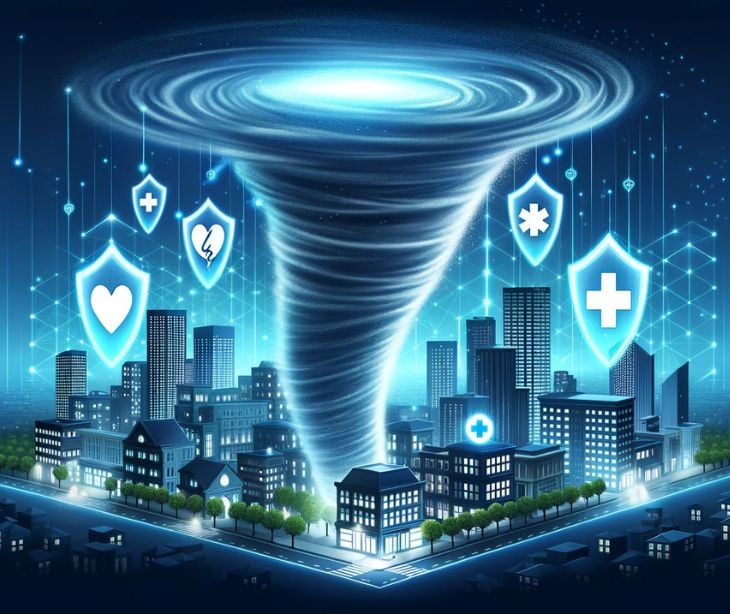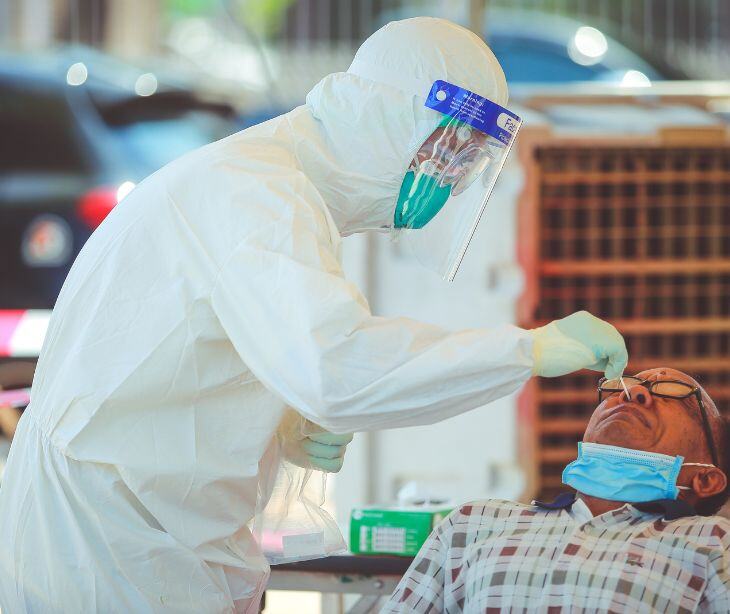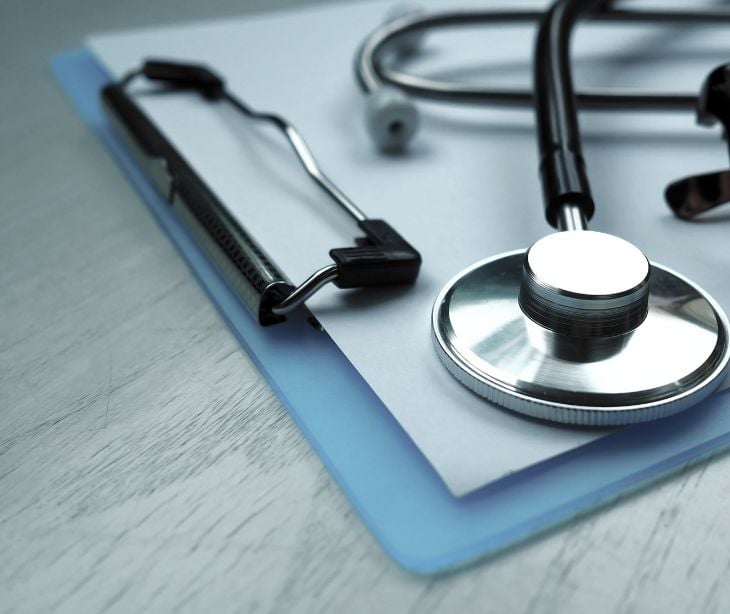
Natural disasters like hurricanes, floods, and wildfires can severely disrupt healthcare operations and infrastructure. During disasters, healthcare organizations must continue to maintain the confidentiality, integrity, and availability of patient information, as required by HIPAA regulations.
How does HIPAA define natural disasters?
HIPAA doesn't provide a specific definition of a natural disaster, but it does establish guidelines for how covered entities can manage patient information during emergency situations, which may include natural disasters.
Legal framework
The legal foundation for these measures is established in Section 1135 of the Social Security Act, which grants the authority to make exceptions or adjustments to specific healthcare requirements in emergency situations.
As stated by the HHS, "If the President declares an emergency or disaster and the Secretary declares a public health emergency, the Secretary may waive sanctions and penalties against a covered hospital that does not comply with certain provisions of the HIPAA Privacy Rule:"
The HIPAA waivers are deliberately designed to be limited in extent, with a particular focus on addressing the unique circumstances of the emergency at hand.
The impact of natural disasters on healthcare operations
Natural disasters can have a significant impact on healthcare operations. They can disrupt power supply, damage physical infrastructure, and cause the displacement of healthcare providers and patients.
During disasters, healthcare organizations may need to implement alternative measures to ensure the continuity of care and protect patient data. This may involve relocating operations, establishing temporary healthcare facilities, and utilizing telehealth technologies. This requires careful planning and coordination to ensure patient information remains secure.
Protecting patient data during natural disasters
To protect patient data during natural disasters, healthcare organizations should consider the following measures:
1. Disaster recovery and business continuity planning
This plan should include procedures for data backup, emergency communication, and alternative methods for accessing patient information. Regularly test and update the plan to make sure it is up to date and will be effective during a natural disaster.
2. Secure data storage and backup
Storing patient data in secure, off-site locations can help mitigate the risk of data loss during a natural disaster. Healthcare organizations must implement secure data storage and backup solutions, like encrypted cloud storage or off-site data centers. Regular backups should be performed to ensure the availability of patient information in the event of a disaster.
3. Access control and authentication
Healthcare organizations should enforce unique user IDs, strong passwords, and multi-factor authentication for accessing electronic health records (EHRs) and other sensitive systems. Regular audits should be conducted to identify and address any potential vulnerabilities.
4. Training and education of staff
Healthcare organizations should provide regular training sessions on data security, privacy policies, and disaster response protocols. Staff members should know their roles and responsibilities in safeguarding patient information during a crisis.
5. Incident response and reporting
Healthcare organizations should have protocols for detecting, containing, and mitigating the impact of security incidents. In addition, they should follow the HIPAA breach notification requirements and report any breaches to the appropriate authorities.
Go Deeper: How to inform patients of a HIPAA breach
Do HIPAA sanctions get waived during a natural disaster?
HIPAA remains in effect during natural disasters.
However, the Department of Health and Human Services (HHS) can temporarily waive certain provisions during declared public health emergencies. This enables providers to share PHI for treatment, public health, law enforcement, and involving family and friends in patient care.
Additionally, the HHS states, "If the President declares an emergency or disaster and the Secretary declares a public health emergency, the Secretary may waive sanctions and penalties against a covered hospital that does not comply with certain provisions of the HIPAA Privacy Rule."
Related: How to be HIPAA compliant in emergency situations
In the news
Following Hurricane Idalia in Florida and the Maui wildfires, President Biden and HHS Secretary Becerra declared a state of emergency and public health emergency in both locations, responding to massive losses.
These declarations led to various actions, including waiving HIPAA regulations to enhance crisis response, allowing healthcare providers greater flexibility in patient care without compromising privacy and security standards.
While these measures grant more flexibility in emergency healthcare and natural disasters, they are temporary and do not exempt providers from privacy laws; they improve crisis response.
FAQs
Does HIPAA apply during natural disasters?
Yes, HIPAA remains in effect during natural disasters. However, the Department of Health and Human Services (HHS) can temporarily waive certain provisions during declared public health emergencies, enabling providers to share PHI for treatment, public health, law enforcement, and involving family and friends in patient care.
Do I need consent to share patient information during a severe disaster?
Healthcare providers can share patient information without individual consent in specific scenarios such as treatment, notification, preventing imminent danger, and maintaining a facility directory. Verbal permission should be sought when possible, but if the individual is incapacitated or not available, providers may share information for these purposes if, in their professional judgment, doing so is in the patient's best interest.
Do non-compliance penalties still apply during a natural disaster?
Neglecting HIPAA compliance during natural disasters results in severe repercussions. Violations will still trigger civil penalties, with fines spanning thousands to millions. Willful infractions can lead to criminal charges involving fines and potential incarceration.
Subscribe to Paubox Weekly
Every Friday we bring you the most important news from Paubox. Our aim is to make you smarter, faster.




